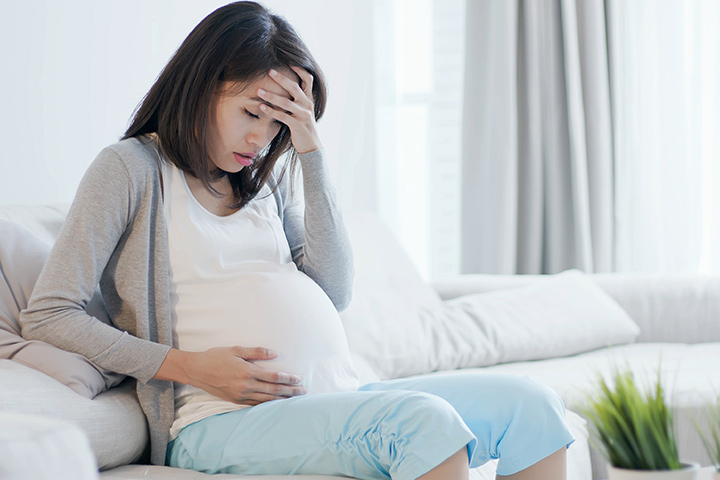
Image: Shutterstock
Most drugs (if not all) come with a warning that says whether or not it is safe for pregnant women. There’s a good reason why pregnant women are warned before taking a particular medication — it can have an impact on you as well as your unborn baby.
During pregnancy, the baby is in its developmental stage, and certain medications can affect the growth and development of your unborn baby. The last thing any mother wants for her child is birth defects or a miscarriage. This sounds scary, and it may not be what you want to hear, but better safe than sorry, right? As you embark on this beautiful journey, it’s essential to know what’s safe for you and your baby and what’s not, as far as medications are concerned. So let’s get started!
Medications That Are Considered Safe
Image: Shutterstock
Truth be told, you can’t be sure about any medication, so it is best to consult your doctor before going ahead. Having said that, the following medications are considered safe for pregnant women:
- Acetaminophen, which is a pain reliever and used to treat fever (1).
- Certain antacids that contain calcium carbonates to treat heartburn (2).
- Medications to treat diarrhea, which contains kaopectate (3).
- To treat allergic reactions, antihistamines such as diphenhydramine, chlorpheniramine, and loratadine. Diphenhydramine is the most commonly prescribed antihistamine and is considered safer than the other two (4).
- Cough medications that contain dextromethorphan and certain expectorants that are only prescribed by the doctor (5).
- To treat constipation, the doctor may prescribe mild laxatives. Women often struggle with bloating during pregnancy, so to treat this, certain gas aids are considered safe (6).
- Prenatal vitamins are commonly prescribed during pregnancy and are often highly recommended (7).
- For nasal congestion, the doctor may prescribe nasal sprays that contain steroids (8).
- Diphenhydramine and hydrocortisone are often prescribed in moderation to treat skin rash during pregnancy (9).
- Witch hazel, which can treat inflammation, is often recommended to treat hemorrhoids (10).
- Certain sleep medications are allowed during pregnancy but only after the recommendation of your doctor (11).
If you suffer from conditions such as asthma or hypertension, the chances are that you are on a pre-existing course of medication. Such medications are most likely to be continued even during your pregnancy. However, it is best to consult your doctor about this as well.
Medications That Are A Strict “No”
Image: Shutterstock
Now that we have the good meds out of the way, let’s talk about what medications should be avoided at all costs if you are pregnant:
1. Decongestants
Image: Shutterstock
Certain decongestants such as phenylephrine and pseudoephedrine can harm your pregnancy, so they should be avoided at all costs. During the first trimester, it can affect blood flow to the placenta and cause stomach defects. Also, do not take cough medications without the recommendation of your doctor (12).
2. ACE Inhibitors
Image: Shutterstock
ACE inhibitors, short for angiotensin-converting enzyme, are a category of drugs used to treat hypertension and heart failure by relaxing the blood vessels on the one hand and decreasing the volume of blood on the other. Pregnant women are advised to avoid ACE inhibitors as they can cause birth defects (13).
3. Methotrexate
Image: Shutterstock
Also known as amethopterin, methotrexate is a drug that is generally used as an immune-system suppressant and as a chemotherapy agent. Often, this drug is used to treat autoimmune diseases, psoriasis, rheumatoid arthritis, and cancer. It is also used to treat ectopic pregnancies and for medical abortions. It can cause miscarriage or congenital disabilities in your child (14).
4. Isotretinoin
Image: Shutterstock
Isotretinoin which also goes by 13-cis-retinoic acid, is prescribed to treat severe skin disorders such as cystic acne and skin cancer. If consumed during pregnancy, you may be at a risk of miscarriage. It can also cause physical and mental defects in your child (15).
5. Valproic Acid
Image: Shutterstock
This is a class of medication used in the treatment of epilepsy, migraines, and bipolar disorder. It is considered unsafe for pregnant women as it can cause severe congenital disabilities, including heart abnormalities, behavioral problems, and learning difficulties (16).
The best thing to do is to check with your doctor before taking any medication. If you were using a particular drug before pregnancy that has to be continued during and after pregnancy, but is unsafe for pregnant women, ask for an alternative medication that is considered safe. If you are having a reaction to a particular drug, consult your doctor immediately. What are your thoughts on this? Have you had medication that affected your pregnancy? Let us know in the comments below!



















